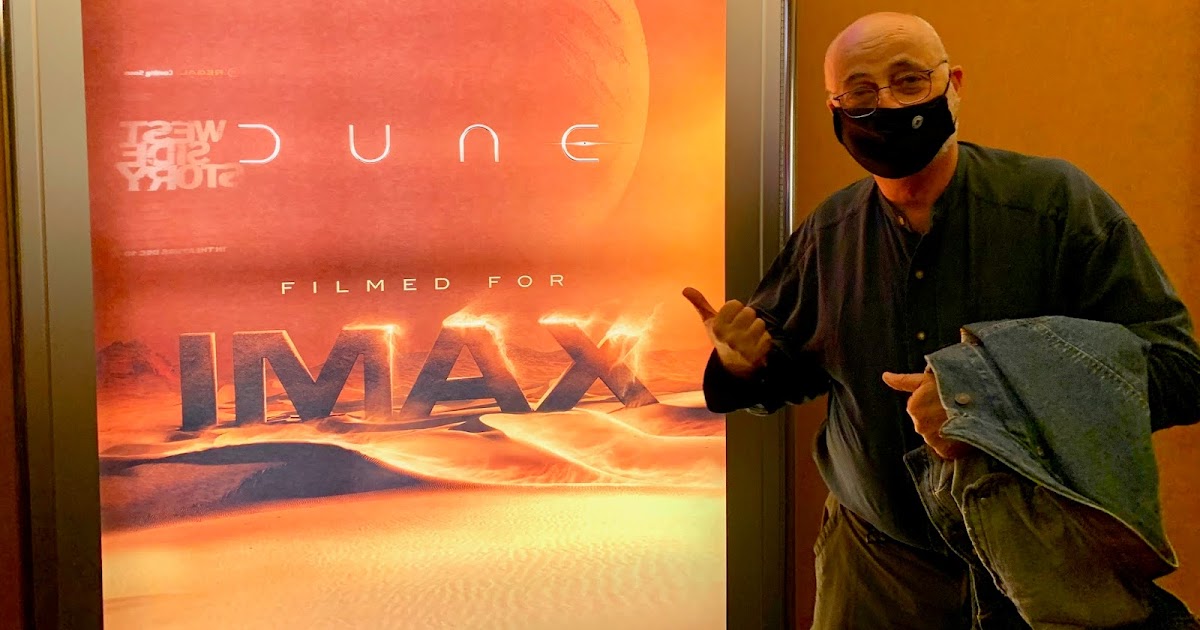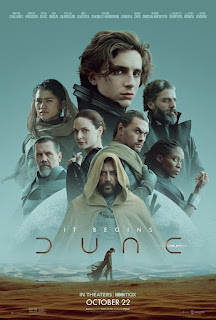
All right, off-the-cuff let me say that, of course, the latest adaptation of Dune by Denis Villeneuve is magnificent. It is spectacularly good and supremely enjoyable, on a par with the best of Spielberg, or Zemeckis, or Cameron. The admirable qualities are apparent to all.
Still, even while enjoying great movies, there remains a part of me who keeps taking notes. Furthermore, general approval doesn’t forbid my making a few specific comments, including comparisons to earlier versions.
And so, for those of you who enjoy nitpickery – and promise you won’t let it spoil for you a great flick – buckle up and let’s get to it:
SPOILERS
SPOILERS
– Okay, for starters, I must get this out there. Unlike almost everyone I know, I actually liked the David Lynch 1982 version, a lot.
My own theory to explain all the hate it got is that it faithfully portrayed Frank Herbert’s original intent, which was to make feudalism look bad! To be clear, Herbert said that Lynch’s vision of the Dune Universe very closely matched the mental images that Frank himself had of Dune. He spoke of how closely he worked with Lynch. Though yes, some things that Lynch added were just bizarre. The Harkonnen skin disease for example and grotesque heart plugs I do know Lynch’s clever-clumsy innovation of weapons based upon sound was not in the original novel, but was adopted by Frank Herbert at least somewhat, in later works.
I believe a lot of viewers were made uncomfortable by how Lynch succeeded at Frank’s intent to portray the Atreides as awful. Okay, they’re visually pretty and loved by their top officers and maybe they’re above-average for feudal lords – but they’re still feudal lords and that makes them kinda almost nazis… though still much less horrendous than Harkonnen vampires. A standard storytelling trick to get you to root for the unlikeable.
I came away from the Lynch film hoping – as Frank intended(!) – that all of the fighters and lords and emperors and guilds and Bene Gesserits would just go and die, please? Except maybe a couple of Atreides corporals with secret democratic ambitions. It’s also what I wanted George to do in Game of Thrones. Alas.
But sure, defeat the evil Harkonnen and Emperor, first.
Nor were the tribal Fremen any improvement. Oh, sure, gritty and oppressed underdogs – again, a very effective trope. Though Herbert later has them proceeding – across the Dune books – to wreak hell and death across the galaxy. Alas, try as he might, Frank Herbert kept failing to get his point across, as readers and viewers continued kvelling how they’d like to go to his wonderfully vivid, but also horrendously Halloween-level universe of failure, evil and pain.
And yeah, that means I liked the story for some added reasons not shared by most. As a warning.
Key point about endings:
As I know very well from Kevin Costner’s film version of my novel The Postman, when a film’s ending sucks, that’s all people will remember, no matter how beautiful the first 90% was.
And yeah, the last 10 minutes of David Lynch’s Dune was so awful. Making it rain? Feh. And promising to bring peace to a galaxy that Paul would soon send careening into jihad and hell? Just please defeat the villains and have done with it, will you? Don’t make it so abundantly clear we’ve only replaced ugly monsters with pretty ones? Worse, Paul suddenly transforms from underdog to creepy-bossy-arrogant mega-overdog. No, that Dune flick did not end well.
And yes, that constitutes the top lesson that I hope Denis Villeneuve studies carefully. And good luck to him!
Nit-picks!
– All right, taking all that into account, sure the Villeneuve Dune is vastly better than the 1984 Lynch version! Even if you take into account the incredible differences in rendering technology (e.g great ornithopters!), the 2021 film is just a better-told story.
For example, by showing Chani in 5 whole minutes worth of precognitive dreams, Villeneuve made the love story central to this telling of the first half, even long before their first kiss. Lynch had given Chani short-shrift and that irked. So the new one is a great improvement.
– In contrast, to save time, Villeneuve dumped any glimpse of the emperor or the Spacer Guild. And sure, that’s okay. He did just fine without them. But Lynch’s portrayals of both were memorable and I’d defend them.
– Let’s be clear about the Lynch version’s voice-overs – both in character thoughts and data dumps.
Sure, many of them were cringeworthy, though Frank Herbert used both methods extensively in the book. Only to be fair… well… they were necessary back in Lynch’s flick! Same as voice-over narrations had been needed 2 years earlier, in the first version of Bladerunner.
Yes, I am glad Ridley Scott later did a Bladerunner director’s cut that omitted those voice-overs! The resulting version is far better art! By then, we all knew why Roy Blatty wanted Deckert to be with him, when he died and did not need Harrison Ford telling us. But in 1982, most of the audience really needed Ford’s narration. As they needed Lynch’s in Dune 1984. (And are there voice-over cues in the contemporary Wonder Woman 1984? Never saw it.)
The Villeneuve Dune didn’t require voice-overs and data dumps because millions who already knew the story could explain it to those who need explanations.
All right then, there’s all the sword fighting.
Well, okay, I guess. Gives the flick a nice heroic medieval feel and that’s appropriate with all the feudalism, I guess. And the slow bombs were cool! (Though having separate shielded compartments within the ships would thwart the slow bombs, and compartmenting ships goes way back.)
And I guess we didn’t really need to know why lasers don’t work vs. transparent shields. I suppose. (Though that part of Frank’s setup never made much sense. What? Explosions don’t transfer momentum even to a shielded guy?)
And so (I guess) we should ignore just about any other fighting advantage that might derive from technology. I guess.
But sure, okay, as a former fencer and street-fighter, I could dig it, telling the nitpicking modernist corner of me to shut tf up and enjoy all the blade flouncing n’ stuff. I suppose.
Still, the whole notion that Doctor Yueh would be able to sabotage everything, including lookout outposts or maybe one on the feaking moon? Doesn’t that say something about Atreides martial stupidity? All right, that one is on Frank.
Minor points.
– In Lynch, Paul eats some food-prepared spice because the aristocracy consumed it for life extension – one more way the rich get to be godlike. That aspect is dropped in the Villeneuve Dune and one’s impression is that Paul’s first encounter with the stuff is upon arriving on Arrakis. In fact, the reasons for spice greed are dropped after just one vague mention of the spacer guild.
– Likewise, all the ecosystem stuff. In the Lynch version, Kynes the ecologist gets to weigh in on the mystery of the origins of spice, but Villeneuve’s Kynes doesn’t even try to hint. It’s only a central theme in six Herbert books.
– Again though, it is vital that someone remind you all that the Dune universe – just like Game of Thrones – is a morality tale against feudalism, which dominated and oppressed 99% of our ancestors for 6000 years! A beastly, horrid form of governance that rewarded the very worst males, that trashed freedom and justice and progress and that made most of those centuries a living hell. A system that will do all the same things to our heirs, if we let it return.
We can do better.
There’s more but… but if I went on, you’d get an impression I did not like the Villeneuve Dune.
In fact, I loved it!
He had to make choices. Fine
The result is spectacular. And I kept the note-taker muffled during the viewing.
Still, there is a part of me that fetishistically takes notes, even on flicks that I love…
…so watch me pick apart and appraise several dozen more, along with their implications for our civilization, in Vivid Tomorrows: Science Fiction and Hollywood!



